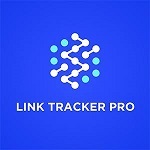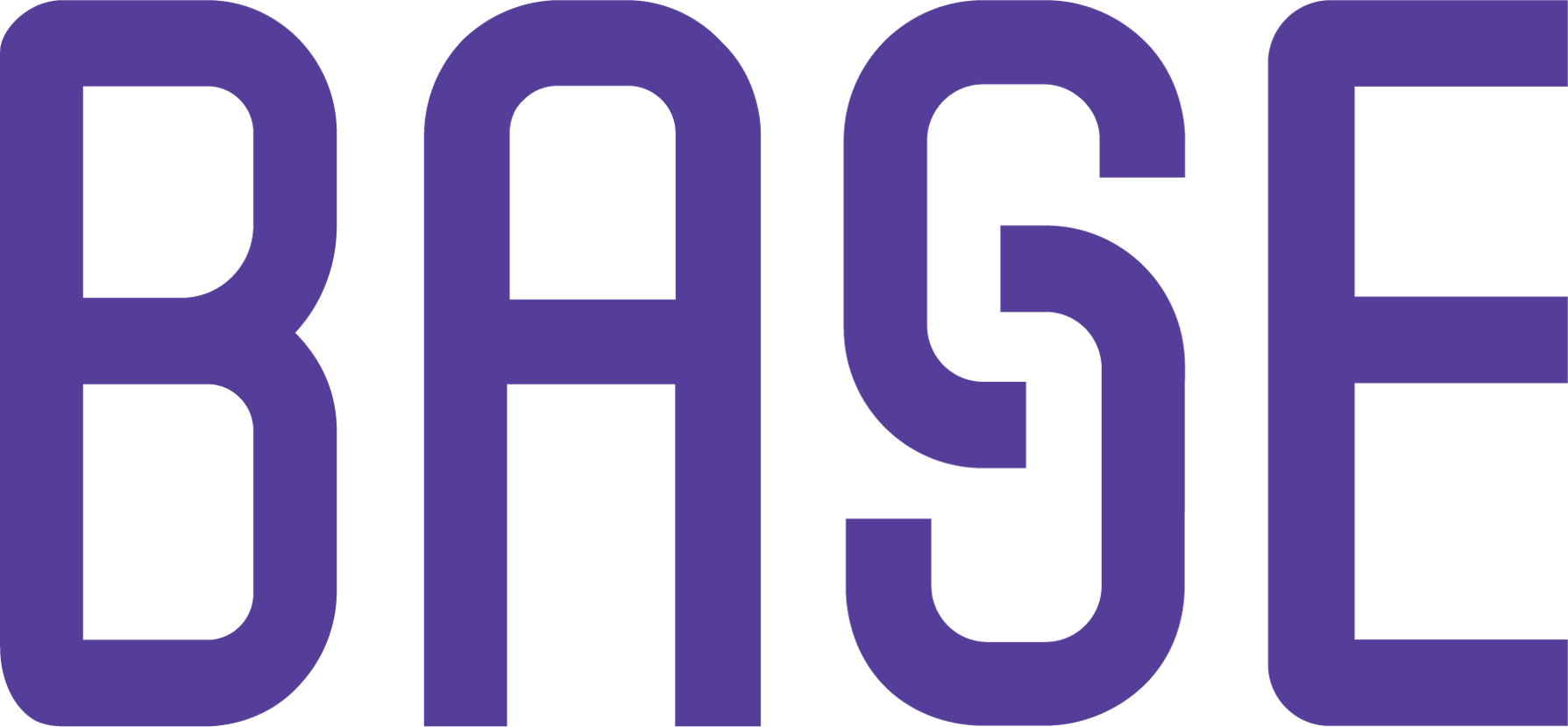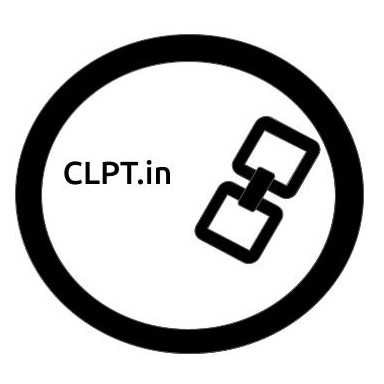Yes, most link tracking tools may be used on numerous devices and platforms. This allows users to trace their links across several platforms, including desktops, laptops, and mobile devices, regardless of the operating system they are using. Furthermore, many link tracking software packages include mobile apps for quick access and tracking on the road. This ensures that consumers may monitor and analyze their links wherever they are.
List of 20 Best Link Tracking Software
Cuttly is a URL shortener tool for personalized links, performance tracking, and custom QR code generation. Streamline your link management and enhance your online presence with this user-friendly and all-inclusive platform. Maximize the impact of yo...Read More Cuttly
Voluum solution for tracking your marketing efforts. Its real-time analytics, advanced reporting, and user-friendly campaign management features boost efficiency for marketers. Bid farewell to manual data tracking and optimize effortlessly for maximu...Read More Voluum
LongTailPro is a desktop software that simplifies the process of keyword research. In a matter of minutes, it enables you to uncover long tail keywords and find low-competition options to boost your Google rankings and attract quality traffic. Furthe...Read More LongTailPro
UTM.io is platform designed to simplify the creation, collaboration, and management of UTMs for your team. Eliminate the hassle of complicated spreadsheets and track your campaigns accurately in your analytics. With instant UTM tracking, optimize you...Read More UTM.io
Link Tracker Pro is a link tracking solution for SEO experts. Boost your backlink building efficiency and enhance your search engine ranking with this cutting-edge software. Identify and remove low-quality links effortlessly while tracking your progr...Read More Link Tracker Pro
ClickGum is a click tracking solution that streamlines link monitoring and optimization. Say goodbye to cumbersome software installations, as ClickGum seamlessly integrates with all advertising platforms. Effortlessly track clicks and boost your camp...Read More ClickGum
Clkim is a URL shortening platform that streamlines the process of setting up a personalized domain within two minutes. This powerful software boasts smart redirection and retargeting features that drive valuable traffic to your website. It also offe...Read More Clkim
Veshort is a URL shortener designed to streamline and optimize your marketing links. Elevate your marketing strategy with added features such as bio pages, QR codes, and call-to-action overlays. Maximize the impact of your campaigns and effortlessly...Read More Veshort
AdsBridge is a top-notch affiliate tracking software with a successful track record of four years. Our platform offers intelligent tracking and monetization solutions, allowing users to seamlessly manage ads without any redirection problems. We have...Read More AdsBridge
Base.me is a link building management tool that transforms the way SEO agencies work. Say goodbye to the confusion of traditional spreadsheets and hello to a streamlined process. Keep track of link status, health and progress effortlessly with Base.m...Read More Base.me
CLPT.in is a brand management platform that streamlines and enhances your online presence across popular social media channels, including Instagram, Facebook, Twitter, YouTube, and Pinterest. Its powerful tools help you efficiently manage your brand...Read More CLPT.in
ClickMeter - the leading software solution for tracking, analyzing, and sharing data. Originally created to meet the tracking needs of our agencys web marketing efforts, it has since become a top choice for businesses looking to enhance their online...Read More ClickMeter
Bitly is a highly reliable URL shortening tool that enhances the exposure of your links. It offers detailed analytics for monitoring link performance and the option to share shortened links through text messages. Bitly ensures security from eavesdrop...Read More Bitly
Fortifi is a business management platform designed to optimize billing, marketing, and support processes. Simplify and streamline your operations by consolidating all your business applications in one reliable location. Say goodbye to the frustration...Read More Fortifi
ClickPerfect is a click tracking and targeting software that will take your marketing campaigns to the next level. With features like advanced link cloaking, precise geotargeting, click fraud and bot detection, one line conversion tracking, and advan...Read More ClickPerfect
SimpleTexting is your ultimate solution for all your bulk SMS needs. Our innovative SMS software streamlines the process of sending mass text messages, making it easier and more efficient for you to connect with your audience. With a user-friendly in...Read More SimpleTexting
Linktrack is a tool for real-time click monitoring. With our user-friendly interface, you can accurately track the source of your website traffic and receive instant updates. This makes it the perfect solution for streamlining your link tracking proc...Read More Linktrack
ClixTrac, the top-notch link tracking solution for all your advertising needs. Keep a close eye on the performance of your banners and links without any hassle. Experience the convenience of tracking the number of views and clicks for your ads, be it...Read More ClixTrac
LinkTrackr is tool that tracks and analyzes all sales and leads generated through your marketing efforts. Our cutting-edge conversion tracking technology eliminates duplicate conversions and enables you to customize tracking rules for your campaigns...Read More LinkTrackr
ClickMagick - the powerful click tracking solution that boosts your link profitability to the max. Our software allows you to effortlessly manage and rotate your links for optimal performance. Plus, we handle everything in-house for unbeatable speed...Read More ClickMagick
Learn More About Link Tracking Software
- What Is Link Tracking Software?
- What Are The Recent Trends In Link Tracking Software?
- Benefits Of Using Link Tracking Software
- Important Factors To Consider While Purchasing Link Tracking Software?
- What Are The Key Features To Look For In Link Tracking Software?
- Why Do Businesses Need Link Tracking Software?
- How Much Time Is Required To Implement Link Tracking Software?
- What Is The Level Of Customization Available In Link Tracking Software?
- Which Industries Can Benefit The Most From Link Tracking Software?
- Conclusion
What Is Link Tracking Software?
Link tracking software, often known as URL tracking software, is a sophisticated tool for tracking and analyzing the performance of links, clicks, and conversions across various marketing campaigns or digital content. It enables organizations to precisely measure the performance of their online activities and make data-driven decisions to improve their strategies.
At its heart, link tracking software works by assigning each link a unique tracking code or URL, which then sends viewers to the intended destination. This code or URL has tracking capabilities that collect information about the number of clicks, the source of traffic, and other pertinent metrics. One of the primary advantages of employing link monitoring software is the ability to measure and attribute conversions to specific links or sources.
This enables organizations to identify which ads or channels are delivering the most conversions and then adapt their efforts accordingly. Furthermore, link tracking software offers thorough analytics and reporting, giving users insight into their click-through rates, engagement, and other performance data. This information is critical for organizations to understand their target audience's behavior and make sound marketing decisions.
When shopping for link monitoring software, consider features like real-time tracking, customizable reports, and connectivity with other marketing tools. Furthermore, some software may have advanced features such as A/B testing, retargeting, and link rotation, which can provide additional insights and aid in the effectiveness of marketing campaigns.
What Are The Recent Trends In Link Tracking Software?
Recent advancements in link monitoring software have shown a shift toward more powerful and comprehensive solutions that meet the growing needs of organizations and marketers. The incorporation of artificial intelligence and machine learning capabilities into link tracking software is a significant emerging trend. This enables more precise and sophisticated link tracking, resulting in useful insights and predictive analytics for enterprises.
Another trend in link monitoring software is an increased focus on data privacy and security. With the growth of privacy legislation such as GDPR and CCPA, link tracking software companies are taking stricter precautions to protect sensitive data. This covers functions such as data encryption and safe data storage. In accordance with the growing importance of social media marketing, link monitoring software has begun to include tools for tracking links across many social media platforms.
This enables organizations to effectively track the efficacy of their social media operations and make data-driven decisions. Furthermore, link retargeting and remarketing using link tracking tools are becoming increasingly popular. This enables firms to target certain groups and retarget them with individualized messaging, so enhancing the success of their marketing campaigns.
Cloud-based link tracking software has also gained popularity in recent years due to its ease of use and accessibility from any location, at any time. Businesses can now track their linkages while on the go and make informed decisions from a remote location. Finally, link monitoring software companies are concentrating on giving a more seamless and integrated experience by integrating with other marketing tools and platforms such as CRM systems, email marketing software, and analytics tools. This allows organizations to streamline their marketing efforts and gain a comprehensive view of their link monitoring data.
Benefits Of Using Link Tracking Software
In today's digital age, businesses rely largely on online marketing to attract a larger audience and increase traffic to their websites. Link tracking software helps to optimize this process by offering vital insights into the performance of your links and campaigns. One of the most significant advantages of employing link monitoring software is the ability to track and evaluate click-through rates (CTRs) for your links.
This provides you with a clear picture of which links are generating the most clicks and conversions, allowing you to concentrate your efforts on the most effective techniques and maximise your ROI. Furthermore, link monitoring software provides precise information about the source of your clicks, whether they came from social media, email campaigns, or other sources. This allows you to see which channels are providing the most traffic and tailor your marketing strategy accordingly.Another benefit of employing link monitoring software is the opportunity to monitor conversions and income earned by each connection.
This assists you in identifying the most profitable links and channels, allowing you to properly manage your resources to increase sales. Furthermore, link tracking software allows you to monitor the performance of your competitors' links and initiatives. This vital data allows you to keep ahead of the competition and change your plans accordingly. Aside from tracking and analysis, link tracking software provides link management functions, allowing you to organize and categorize your links for easy browsing and monitoring.
Important Factors To Consider While Purchasing Link Tracking Software?
When it comes to choosing link tracking software, there are numerous crucial elements to consider to guarantee you make the best purchase. As a buyer, you must have a thorough awareness of these critical variables in order to select the correct software for your individual needs and goals.
Here are some crucial considerations to consider while selecting link tracking software:
1. Features And Functionality: The software's features and functionality should be considered first. Every link tracking program has its own set of capabilities, so determine which ones are most important to you. For example, do you require real-time tracking, conversion tracking, or the capability to track multiple link types? Make a list of the features you require and compare them to other software solutions.
2. User Interface And Ease Of Use: The software's interface and usability can have a significant impact on your overall experience. A sleek, intuitive, and user-friendly interface can help you track things more easily and efficiently. Some software also provides configurable dashboards and reports; consider whether this is something you require.
3. Compatibility And Integrations: Make sure the link tracking software you chose is compatible with your current tools and platforms. This applies to any website builders, content management systems, and marketing tools you utilize. Also, seek for software that integrates with major platforms such as Google Analytics and social media outlets.
4. Security And Data Privacy: As a buyer, you want to ensure that your information is safe and secure. Look for link tracking software that includes strong security features such as HTTPS encryption and backups. Also, make sure the software is GDPR compliant to ensure that your data is managed in accordance with privacy regulations.
5. Pricing And Affordability: The cost of link tracking software can vary greatly, so check pricing and stick to your budget. Some software allows for a one-time payment, while others may require a subscription. Consider your budget and the characteristics you require to obtain the best value for your money.
6. Customer Support: Efficient and dependable customer service is vital for every software purchase. Check to see if the software provides technical assistance, as well as the response time. In addition, seek for tools such as knowledge bases or FAQs to assist you in navigating the software independently.
By taking these elements into account and conducting extensive research, you can make an informed decision and select the best link tracking software for your company's requirements. Reading reviews and receiving recommendations from other users can also assist you comprehend the software's performance and user experience.
What Are The Key Features To Look For In Link Tracking Software?
When selecting the best link monitoring software for your business, you should evaluate the major features that will allow you to successfully monitor and assess the effectiveness of your connections.
The following are the top features to look for in link tracking software.
1. Link Analytics: With this tool, you can track critical data like clicks, conversions, and engagement for each link. This will provide you with vital insights into your audience's behavior and the effectiveness of your connections.
2. Personalized Link Creation: Look for software that lets you build personalized, branded links that are specific to your company. This will improve brand awareness and trust among your target audience.
3. Conversion Tracking: A decent link tracking program should be able to track conversions and assign them to individual links. This will allow you to determine which links are most efficient in driving conversions and tailor your marketing approach accordingly.
4. Cross-Platform Tracking: With the proliferation of mobile devices, it is critical to select software that can track links across multiple platforms, such as desktop, mobile, and tablet.
5. Real-Time Reporting: Make sure the program allows you to monitor the performance of your links in real time. This will allow you to make adjustments and refine your efforts to achieve better results.
6. Link Management: Look for software that supports link grouping, mass link editing, and link expiration. These tools allow you to arrange your links and make modifications as needed.
7. User-Friendly Interface: The software's interface should be simple to use and understand. This saves time and allows you to concentrate on studying your data.
8. Integration Capabilities: Look for link monitoring software that works well with other marketing and analytics tools and platforms. This will provide you a more comprehensive perspective of your marketing activities and save you time switching between different platforms. By taking these essential aspects into account, you can select the best link monitoring software for your business, allowing you to monitor and optimize your link performance for better results and a higher return on investment.
Why Do Businesses Need Link Tracking Software?
In today's digital landscape, businesses rely significantly on internet marketing and advertising to reach their target audience and increase conversions. As a result, tracking the success of links has become critical for firms seeking to make educated decisions and optimize their marketing efforts. Here is where link tracking software comes in handy. Link tracking software is a useful tool that helps organizations correctly monitor the functioning of their links.
It offers real-time tracking and analytics for click-through rates, conversions, and other crucial metrics. This information is critical for organizations to determine which connections generate the most traffic and conversions, as well as highlight areas for development. Furthermore, link tracking software includes complex features like A/B testing, custom URL creation, and link management, allowing firms to test multiple methods and track the efficacy of their marketing initiatives. Furthermore, link tracking software helps organizations safeguard their online reputation by detecting spam and phishing assaults via their links.
Businesses may preserve audience trust by discovering and eliminating harmful links, as well as avoid any brand reputation damage. Overall, investing in link monitoring software can give several benefits to businesses, such as a better awareness of their target audience, marketing campaign optimization, cyber threat protection, and, ultimately, increased return on investment (ROI). With the growing importance of internet marketing, link monitoring software has become a must-have tool for organizations seeking to remain competitive and successful in their digital operations.
How Much Time Is Required To Implement Link Tracking Software?
The implementation time for link tracking software varies depending on the software supplier, the features and customization options chosen, as well as the complexity of your website and tracking needs. The process can last anywhere from a few hours to a few days, depending on the level of technical skill and available resources. The initial setup often includes registering an account with the software provider, placing tracking code on your website, and setting the tracking parameters.
Most software suppliers provide user-friendly interfaces and step-by-step instructions to assist with this, which may be finished quickly. However, the actual time necessary for full implementation may include tasks such as establishing tracking goals and parameters, configuring conversions or triggers, and personalizing reports and notifications. This may require additional time and money, especially for larger or more complex websites.
It is also critical to consider the software's training and familiarization phase, as well as potential integration with other tools and platforms such as email marketing or CRM. Overall, while some link monitoring software may be deployed in a matter of hours, it is critical that you provide enough time for a thorough and well-rounded installation to ensure the best results and usability. Setting aside time for routine maintenance and optimization can also help you get the most out of your program and boost its usefulness over time.
What Is The Level Of Customization Available In Link Tracking Software?
Link tracking software has a number of customization options, allowing customers to personalize it to their individual requirements and goals. Link tracking software allows for a variety of customization options, ranging from tracking specific parameters to altering the reporting interface.
Here are some critical considerations when determining the level of customisation in link tracking software.
1. Tracking Characteristics: Each link tracking program has its own set of characteristics to track, such as clicks, conversions, and revenue. Some applications may additionally include extensive tracking features such as location, browser, and device type. It is critical to identify which metrics are critical to your organization and verify that the software you chose supports tracking them.
2. Auto-Tagging And Tag Management: Many link monitoring software allows you to automatically add tracking tags to your links, making it easy to track campaigns and analyze results. Some applications may additionally have tag management capabilities, which allow users to edit or delete tags as needed.
3. Customized Reporting: One important aspect of link tracking software is the ability to generate thorough data on link performance. The level of customisation in reporting may vary depending on the software. Some provide simple reports, while others allow users to modify them by selecting specific criteria, date ranges, and data presentation options.
4. Link Organization And Grouping: As your link tracking requirements expand, the ability to organise and group links becomes critical. Look for software that allows you to label and categorize links for easy management and tracking.
5. Integrations: Link monitoring software frequently connects with other marketing tools, like Google Analytics and social media platforms. The degree of flexibility available in these integrations may differ, so it is critical to assess whatever tools you use and confirm that they are compatible with the software you select.
Which Industries Can Benefit The Most From Link Tracking Software?
Link tracking software has become an indispensable tool for enterprises in a variety of industries, allowing them to follow and assess the performance of their links in real time. This technology has transformed how marketers and professionals manage their internet campaigns and web traffic.
We'll look at which sectors can benefit the most from link tracking software and how it can help them meet their business objectives.
1. Digital Marketing And Advertising: The digital marketing and advertising industries rely significantly on link monitoring software to monitor the success of their online initiatives. This program allows marketers to reliably measure the success of their advertisements and alter their plans accordingly. They may also monitor the efficacy of their landing pages and optimize them to increase conversions.
2. E-commerce: In today's competitive e-commerce environment, tracking link performance is critical to the success of any online store. E-commerce enterprises can use link tracking software to trace the sources of their traffic, assess conversion rates, and determine which connections generate the most revenue. This information can help them make data-driven decisions and increase their ROI.
3. Affiliate Marketing: Link tracking software is essential for affiliate marketers since it allows them to monitor the performance of their affiliate links and campaigns. They can track which affiliates are generating the most clicks and sales, control compensation, and discover their best-performing campaigns. This information is critical for making informed decisions and optimizing affiliate marketing campaigns.
4. Social Media Marketing: Businesses now rely heavily on social media to reach and engage with their target audience. Link monitoring software allows social media marketers to monitor the performance of their social media content and initiatives. They can figure out which platforms and postings are delivering the most traffic to their website and alter their strategies accordingly.
5. Blogging And Content Marketing: Link tracking software is an extremely useful tool for bloggers and content marketers. It enables companies to track clicks and engagement on their content, assess traffic sources, and improve their content strategy for better outcomes. They can also monitor the links in their guest pieces and collaborations to determine the influence on their website traffic.
6. Event Management: Link tracking software can help event planners and organizers gain vital insights regarding the performance of their activities. They may monitor the amount of registrations, traffic sources, and the efficacy of their promotional efforts. This data allows them to make better decisions about future events and improve their event marketing methods.
Conclusion
To summarize, selecting the appropriate link tracking software is critical for any organization or individual seeking to correctly and efficiently track and optimize their internet operations. When making this decision, you should consider the software's features, affordability, usability, and customer support. To begin, seek for software that includes a wide range of tracking capabilities, such as click tracking, conversion tracking, and link cloaking.
This enables you to track and assess the success of your initiatives in real time, as well as make data-driven decisions to improve your marketing efforts. Next, analyze the software's pricing. While some may require a one-time payment, others may use a subscription basis. It is critical to assess your budget and select a plan that matches your goals and resources.
Furthermore, some software has a free trial period, which can be a great way to try out its features before making a purchase. User-friendliness is also an important issue to consider, particularly for people without a technological background. Look for software with a simple interface and extensive tutorials or customer assistance to help you navigate its capabilities. Last but not least, customer assistance is a critical component of any software.
Choose a company that provides timely and dependable customer service, whether via live chat, email, or phone. This will ensure that any issues or questions you may have are resolved quickly, allowing you to get the most out of the product. Overall, using the correct link tracking software allows you to acquire useful insights into your marketing activities and optimize them for better outcomes. Consider all of the aspects listed above to make an informed selection and select the finest link tracking software for your needs.
Link Tracking Software FAQ's
Can Link Tracking Software Be Accessed Across Multiple Devices And Platforms?
Is Link Tracking Software Future-Proof And Adaptable To Emerging Technologies Like AI, Blockchain Or IoT?
Yes, most modern link tracking software is intended to be future-proof and adaptive to new technologies. This implies they are designed to integrate with and exploit AI, blockchain, and IoT technology. As these technologies improve and become more common, link monitoring software will be able to keep up with them and offer additional features and capabilities to its users.
Is There A Free Trial Offered To Assess Link Tracking Software Before Committing?
Yes, many link tracking software vendors provide a free trial period in which consumers can evaluate the product before committing to a subscription. This allows consumers to investigate the software's features and benefits and assess whether it suits their requirements. It also allows you to evaluate the software's functioning and stability before making a purchase. However, the period of the free trial may fluctuate amongst suppliers.
Does Link Tracking Software Offer Data Security Features And Meet Regulatory Compliance Standards?
Yes, most link monitoring software has powerful data security protections to protect your information. These features include data encryption, secure data storage, and access control. Furthermore, many link monitoring software vendors adhere to regulatory standards such as GDPR and CCPA, which provides further guarantee of data security. To protect your company's and your customers' data, you should choose reliable link tracking software that prioritizes data security and compliance.
Can Link Tracking Software Integrate Seamlessly With Existing Tools And Platforms?
Yes, most link tracking software integrates effortlessly with existing tools and platforms. Whether you employ a website builder, CRM, email marketing tool, or social media platform, link tracking software is typically incorporated via plugins, APIs, or manual code implementation. This allows you to track and evaluate all of your links in one location, providing a complete picture of your marketing activities.






















